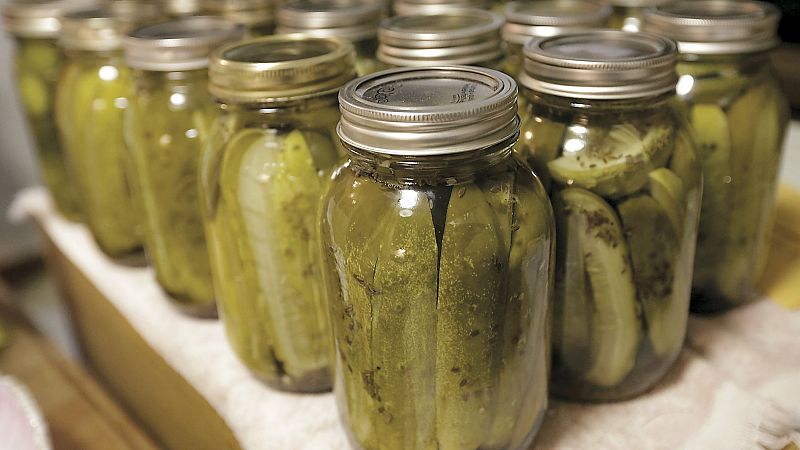
BOTULISM LED TO 5 PEOPLE BEING HOSPITALISED IN FRANCE. WHAT IS IT AND HOW CAN YOU AVOID IT?
At least five people were hospitalised in France last week with suspected botulism after consuming locally made pesto.
Botulism is a rare but severe neurological disease, caused by a bacteria called Clostridium botulinum. The bacteria develop in anaerobic conditions, meaning when there’s an absence of oxygen.
A rare but severe disease
When multiplying, the bacteria produce a potent toxin that attacks the nervous system (nerves, brain and spinal cord) and the muscles.
Botulism leads to death in 5 to 10 per cent of cases, according to the UK National Health Service (NHS).
The symptoms range from problems like blurred vision to difficulty swallowing, nausea and vomiting.
Different types of contamination are possible. Infants under six months to 12 months can get botulism because their immune system is not entirely developed and, therefore can’t prevent the bacteria from producing the harmful toxins.
According to the World Health Organization (WHO), “homemade canned, preserved or fermented foodstuffs are a common source of foodborne botulism”.
Five people hospitalised
The French Pasteur Institute, a national foundation dedicated to the study of diseases, confirmed in a statement last week that the bacteria was found in the jarred pesto.
The five people who got sick shared the same meal, according to a local news station where they ate wild garlic pesto.
The authorities are recalling nearly 600 jars of the product from the market as “artisanal production conditions do not guarantee jar sterilisation”.
Currently, the patients are still hospitalised and are “in a critical condition,” French media reported.
“Treatment of botulism is essentially symptomatic, and in severe forms requires intensive respiratory care with assisted ventilation,” according to the authorities’ official statement.
“The vast majority of patients treated without delay recover without lasting effects, but treatment and convalescence can take several months,” it added.
How to avoid foodborne botulism?
Botulism can be prevented by good food preparation practices such as refrigerating leftovers promptly, washing food, and cooking it properly as toxins are destroyed by lengthy boiling.
Dented or bulging cans or food that smells suspicious when opened should be thrown away.
When opening glass jars, a popping sound caused by air intake should be heard and if that isn’t the case, the product should be discarded, the French National Health Security and Food Agency said.
2024-09-16T16:18:49Z dg43tfdfdgfd